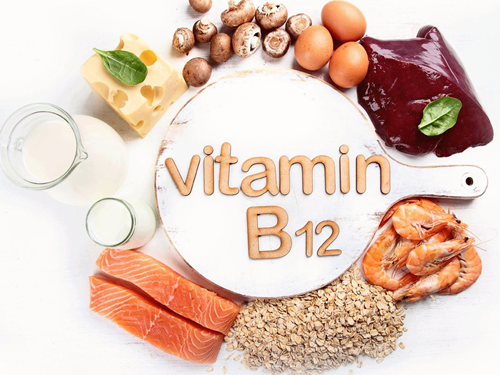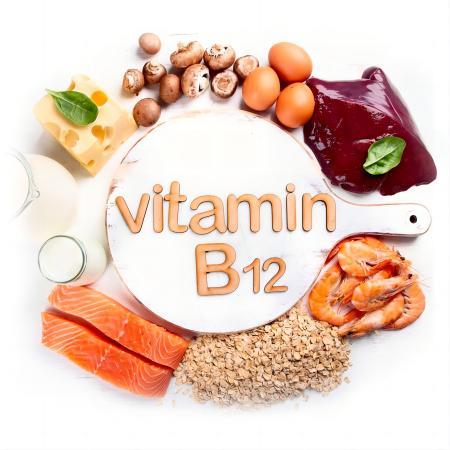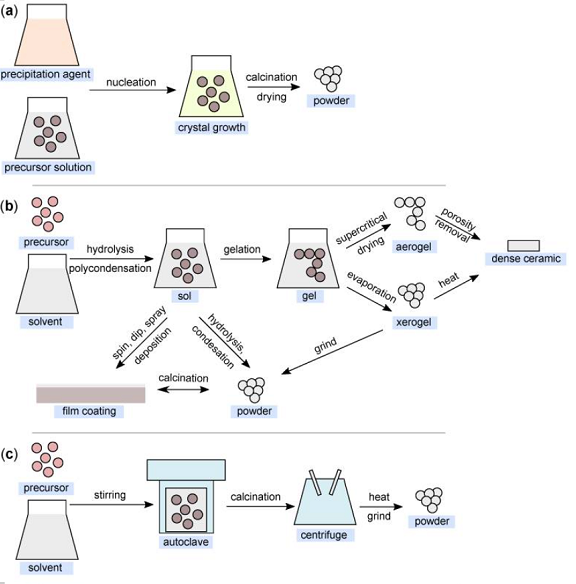The side effects of Vitamin B12
Introduction
Vitamin B12 is an essential water-soluble vitamin for proper red blood cell formation, neurological function, and DNA synthesis. Vitamin B12 has two unique features: The unique human autoimmune disease pernicious anemia (PA) and the virtual restriction of B12 to foods of animal origin. It goes without saying that individuals not consuming animal-derived foods are at risk of vitamin B12 deficiency. The Food and Nutrition Board (2016) recommends that adults consume 2.0 mcg/d of vitamin B12. It is possible for individuals not to consume animal-derived foods, to eat foods with fortified vitamin B12, or to consume dietary vitamin B12 supplements in an over-the-counter pharmaceutical form.
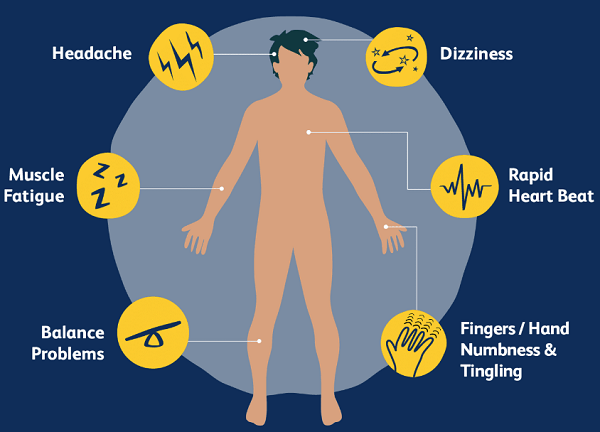
Biological functions
Vitamin B12 (cobalamin) is essential for the synthesis and regulation of DNA and methylation, involved in neuronal structure, the synthesis of neurotransmitters, nerve conduction and excitability, cell metabolism, the synthesis of purines and pyrimidines, synthesis of fatty acids, and energy metabolism, and metabolism of homocysteine. Vitamin B12 can improve cognitive function, especially in the elderly.
Deficiency of B12 is common in older adults and is often underdiagnosed. Absorption of vitamin B12 decreases mainly due to the high prevalence of age-related atrophic gastritis. Vitamin B12 deficiency has been associated with a higher incidence of cognitive impairment, neurological disorders, cardiovascular disease, weakness, and fatigue.
Side effects
Toxicity from natural food sources is not known. Allergic reactions to this vitamin have rarely been reported.
In daily practice, plasma vitamin B12 levels above the upper limit may be encountered (hypercobalaminemia). For most laboratories, the upper limit of normal plasma vitamin B12 is around 700–900 pmol/L. In hypercobalaminemia, the first differential diagnosis is recent (within the last 2 weeks) parenteral vitamin B12 therapy, chronic ingestion of high doses of vitamin B12 (containing) supplements, and any form of hepatocellular damage. In rare cases, elevated vitamin B12 levels might be found in myeloproliferative disorders (such as polycythemia vera or myelogenous leukemia) and certain carcinomas. Careful history taking and, whenever needed, medical work-up is needed. Furthermore, it should be remembered that the normal values were much higher in the past, going up to 1500 pmol/L.
Injectable vitamin B-12, which is used to treat significant deficiencies, can cause the following side effects:
mild diarrhea
itching
skin rash
headache
dizziness
nausea
vomiting
pulmonary edema and congestive heart failure early in treatment
vein thrombosis
sensation of swelling
polycythemia vera (rare, slow-growing blood cancer)
Vitamin B-12 can cause very rare but severe allergic reactions (anaphylaxis). This includes swelling of the face, tongue, and throat and difficulty swallowing and breathing.
Some agents are linked to reduced absorption or serum levels of vitamin B-12. You may need vitamin B-12 supplements if you take any of the following:
colchicine
metformin
proton pump inhibitors
vitamin C
chloramphenicol
H2 blockers
aminosalicylic acid
Folic acid supplements may interfere with vitamin B-12. Be sure to tell your doctor if you take folic acid.
You may like
Related articles And Qustion
See also
Lastest Price from Vitamin B12 manufacturers
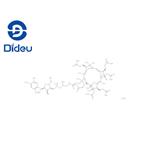
US $0.00-0.00/KG2025-11-29
- CAS:
- 68-19-9
- Min. Order:
- 1KG
- Purity:
- 98
- Supply Ability:
- 10000KGS
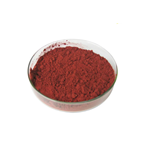
US $20.00-10.00/kg2025-10-31
- CAS:
- 68-19-9
- Min. Order:
- 1kg
- Purity:
- 99%HPLC
- Supply Ability:
- 600tons

